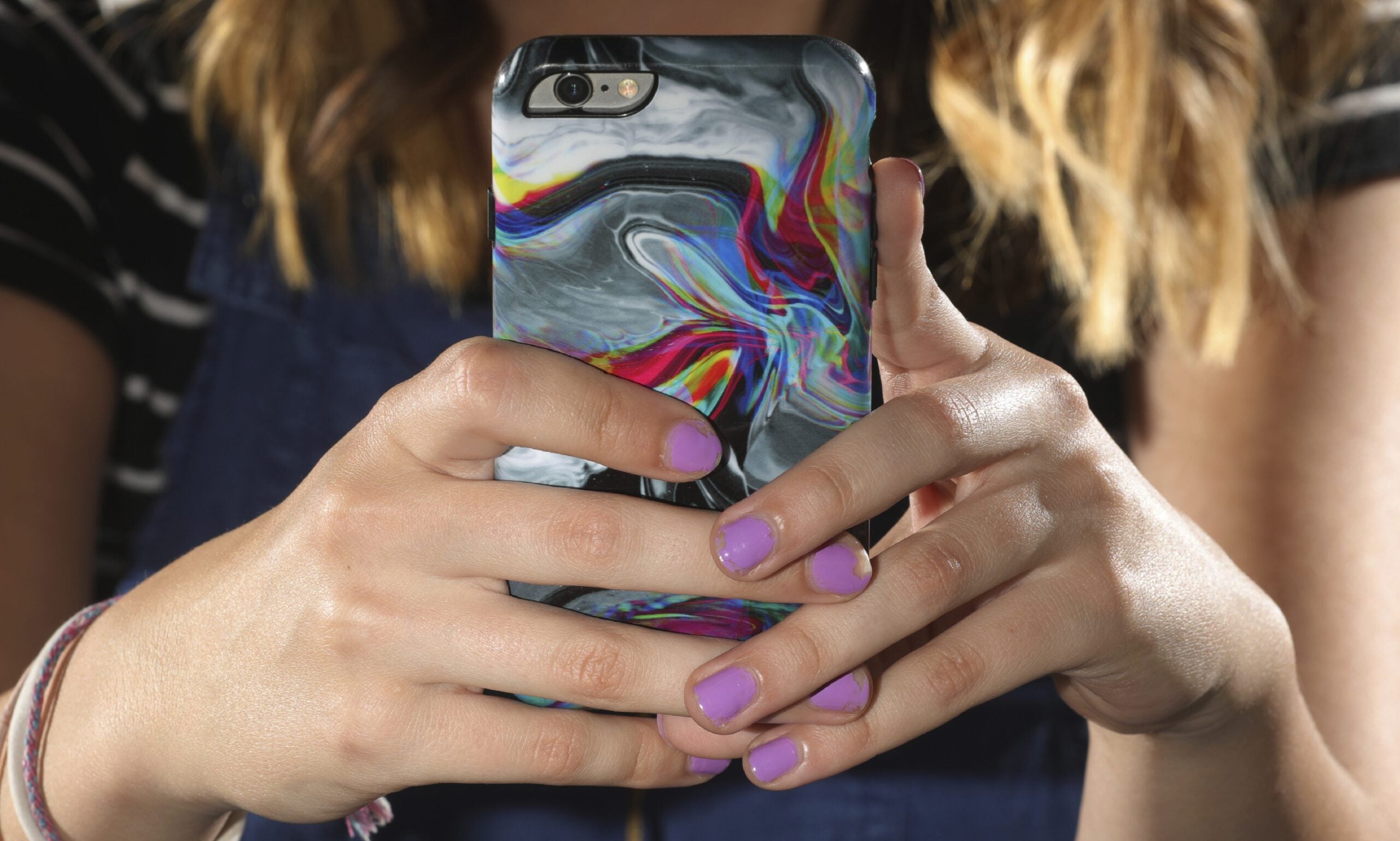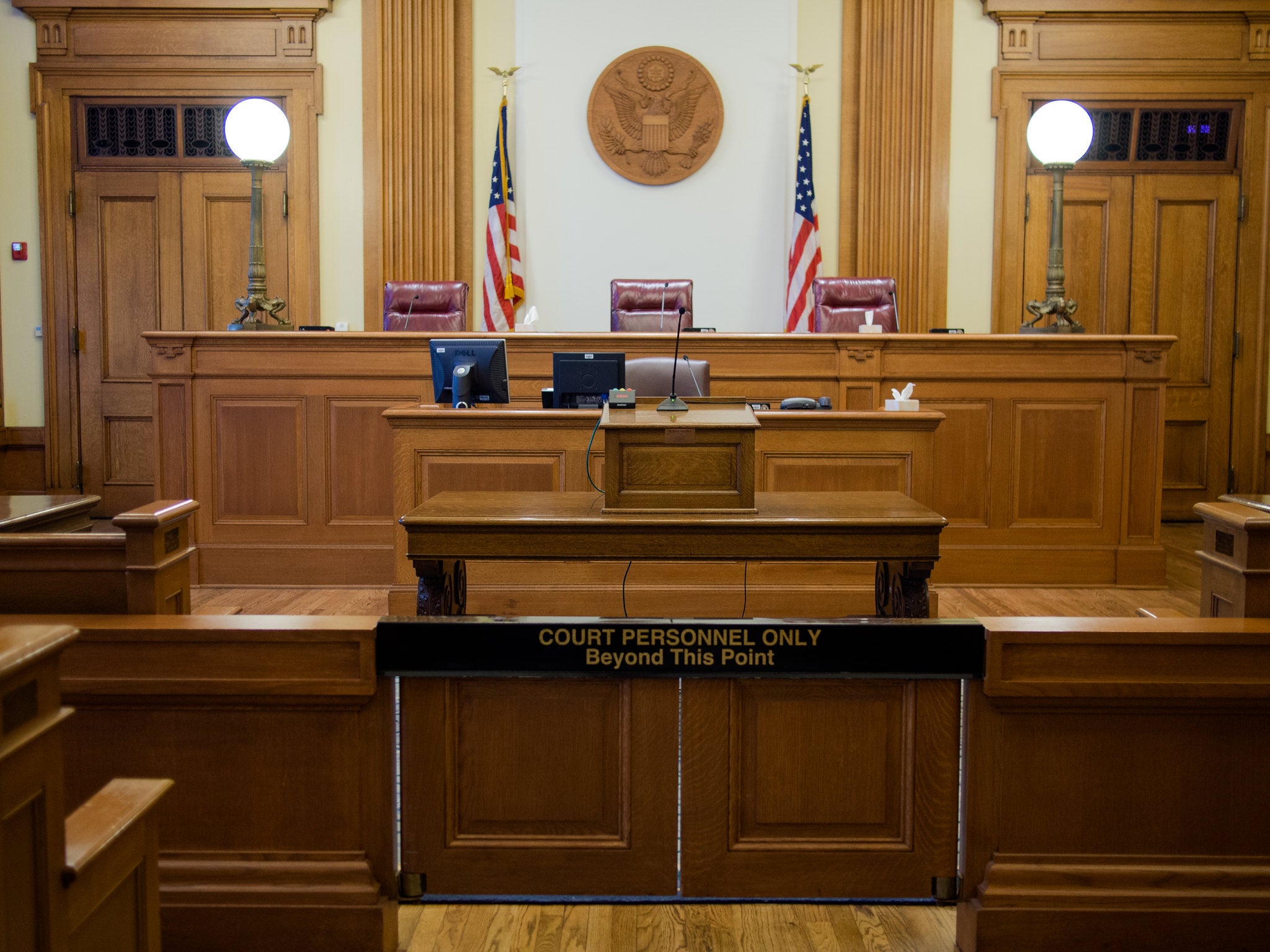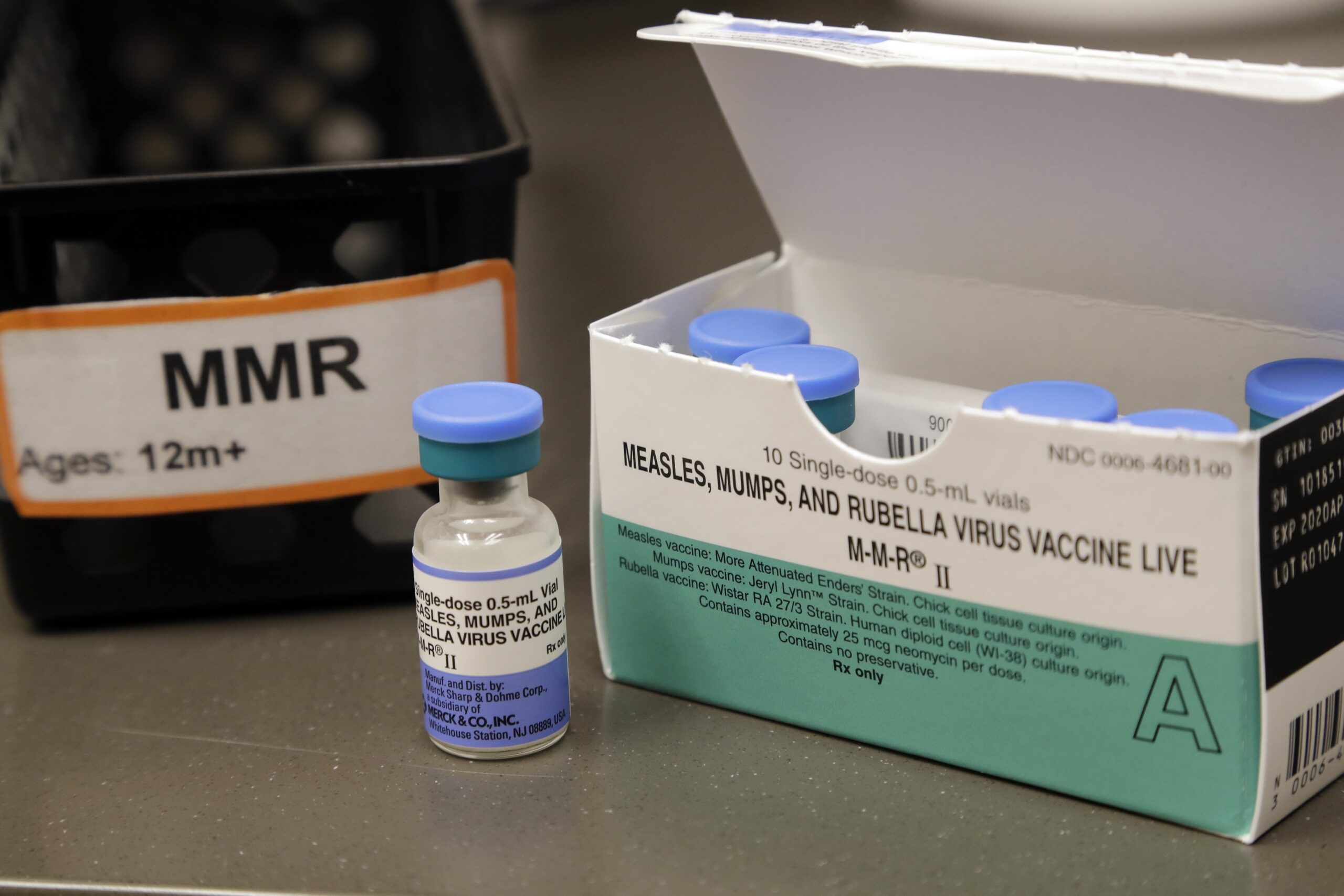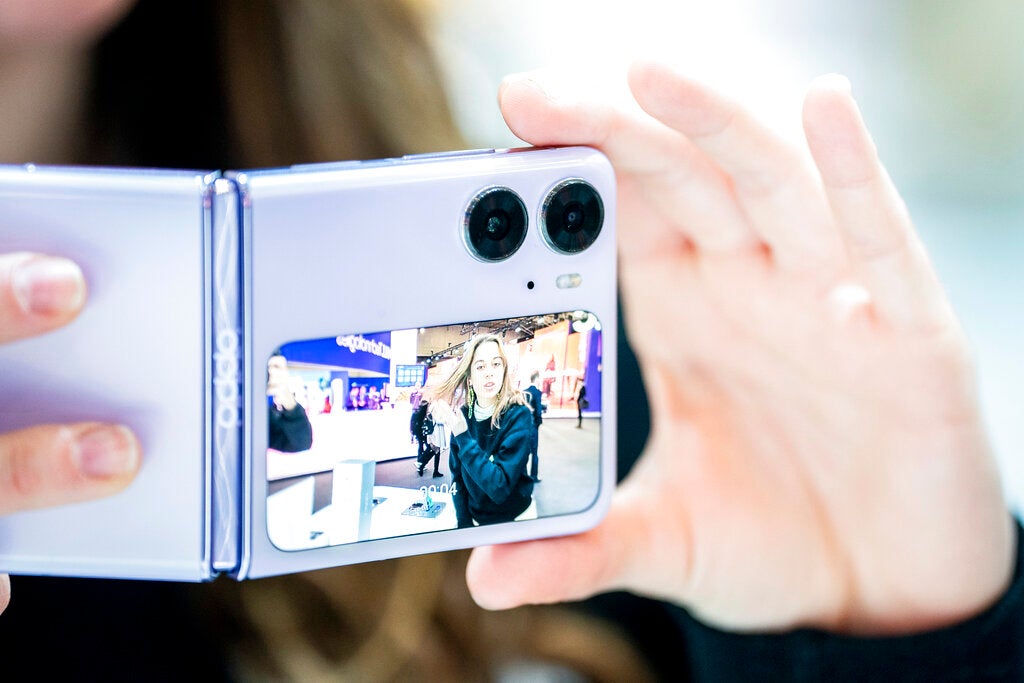Megan Peña considers herself and her family “very pro-vaccine.” She said she and her husband got their COVID-19 shots when they were eligible, and when her daughter Laila turned 12 in July and became eligible for the Pfizer vaccine, she assumed Laila would be similarly excited for immunization.
“She just was like, ‘No, I don’t want to. I want to be able to have children when I’m older, and this is going to make me not be able to,’” Peña recounted. “I said, you know, ‘That’s not the case, where are you hearing this from?’”
The 12-year-old heard the false but pervasive misinformation that the vaccines affect fertility first from a cousin around her age, but then had it reinforced by videos she saw on TikTok, her mom said.
Stay informed on the latest news
Sign up for WPR’s email newsletter.
Children and teens around Laila’s age can be particularly susceptible to misinformation from peers and social media because they’re in a developmental stage where they take more cues from friends, classmates and others their age than from parents or guardians.
Peña said that while she and her daughter have strong lines of communication and talk openly about issues that come up in school and her social life, she is definitely in the phase of doubling down on her own and her peers’ opinions over her parents’.
“She knows everything and no matter what we tell her, we don’t know what we’re talking about,” Peña said. “The peer influence is huge.”
TikTok is, in some ways, primed to take advantage of that peer influence, said Cameron Hickey, director of the Algorithmic Transparency Institute at the National Conference on Citizenship, who studies and writes about TikTok.
“The messages that are the most potent and the most impactful when we are at that age are the ones coming from the other people our age, and TikTok is this massive stream of other people like that,” he said. “One of the most powerful aspects of TikTok is that it is very personal — the majority of TikTok videos are videos of an individual holding the phone in front of their face and talking into the camera.”
Unlike social media networks like Twitter, Facebook and Instagram, where users spend most of their time on feeds that they’ve curated by adding specific friends or following specific accounts or groups, the TikTok feed is driven by an algorithm steered by what users have watched, skipped, shared and re-watched. That means that if a user watches one video with vaccine disinformation all the way through, the algorithm may keep feeding them more and more, Hickey said.
“On Facebook or Instagram or even Twitter, the vast majority of what you see is based on deliberate decisions you’ve made to follow an account or to friend a user,” he said. “On TikTok, the implicit decisions that you’ve made, the behaviors you’ve exhibited to the platform, determine what content appears.”
Last month, the Surgeon General released an advisory about misinformation and disinformation, including guidance for what individuals and communities can do to combat false information, amid concerns that the COVID-19 pandemic is being worsened by an accompanying “infodemic.” COVID-19 and vaccine misinformation has also been spreading wildly on TikTok, with a recent analysis by the Institute for Strategic Dialogue finding some videos with COVID-19 misinformation had been viewed millions of times.
Research shows that the more often people hear a false claim — even if it’s being debunked — the more likely they are to believe it. A recent study shows young people were also more likely to believe COVID-19 misinformation than older people — though the study did not test misinformation about vaccine side effects.
Another of Laila’s cousins turned 12 in January, and was excited to get — and got — the vaccine as soon as she was eligible. Peña said that’s what she’d anticipated from Laila.
“She wants to go back to normal, and be safe, and keep people that she loves safe,” Peña said. “The positive stories are great, and she’s hearing them, but the negative stories cover over that.”
As much as social media can sometimes be an echo chamber, Peña said their community — the family lives in Oak Creek — also has a lot of people who are spreading misinformation or mistrust about COVID-19 precautions, which means Laila may be missing some of the real-world input that could help combat social media misinformation.
“I see a lot of the parents in my neighborhood not really getting vaccinated, or being nervous about it,” Peña said.
Peña is adamant about instilling bodily autonomy in her daughter, and doesn’t plan to force her into doing anything with her body that she doesn’t want to. Instead, she said she’s taking Laila to her pediatrician soon, and anticipates that talking through her concerns with a trusted medical provider will help ease Laila’s concerns.
“My family is very big into being vaccinated, my grandma and my aunts, and they’re like, ‘You need to force her, she’s the minor and you’re the parent, you have to make that choice for her’ — and I don’t want to,” she said. “I feel like once we go to her doctor’s appointment, she’s able to speak with her doctor and get a trusted medical opinion, I feel that she’ll make the right choice.”
Hickey has had his own experiences trying to combat misinformation with family members. His mother is anti-vaccine, and also believes false claims about the 2020 presidential election.
“No amount of evidence — or the fact that her son is a leading researcher in this space — will convince her otherwise,” he said.
What works to address these concerns varies from family to family and community to community, Hickey said, but empathy is key — misinformation spreads particularly effectively among people who are scared, and the pandemic has created a lot of fear, so acknowledging that that fear is valid is an important step.
Peña said that if going over Laila’s fears with a doctor doesn’t work, she’ll have more conversations about what not vaccinating will mean for her daughter — particularly when football season rolls around. The family watches Packers games at her aunt’s house every Sunday. Her aunt has said she wants everyone vaccinated to attend — Peña’s own grandparents are still living, which means a lot of older family members who could be particularly at risk if they get a breakthrough case of COVID-19 will be gathering there.
“I’m going to really put it on her that she has to keep our family members safe, like, you are now the most at-risk person because you’re not vaccinated,” Peña said. “She doesn’t know a Packer game other than being there, so using that — like you’re not going to be able to do things if you’re not vaccinated.”
Wisconsin Public Radio, © Copyright 2024, Board of Regents of the University of Wisconsin System and Wisconsin Educational Communications Board.




